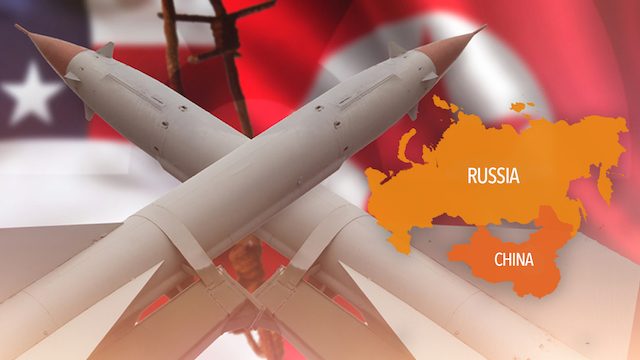SUMMARY
This is AI generated summarization, which may have errors. For context, always refer to the full article.

WASHINGTON DC, USA – The United States Thursday, September 14, called on China and Russia to take “direct actions” to rein in North Korea after it fired a ballistic missile over Japan into the Pacific.
“China supplies North Korea with most of its oil. Russia is the largest employer of North Korean forced labor,” Secretary of State Rex Tillerson said in a statement.
“China and Russia must indicate their intolerance for these reckless missile launches by taking direct actions of their own.”
The launch, from near Pyongyang, came after the United Nations Security Council imposed an 8th set of sanctions on the country over its ballistic missile and atomic weapons programs.
Tillerson called those fresh punitive measures “the floor, not the ceiling, of the actions we should take. We call on all nations to take new measures against the Kim regime.”
“These continued provocations only deepen North Korea’s diplomatic and economic isolation.”
US President Donald Trump has yet to comment on the launch but according to the White House has been briefed.
The UN Security Council will hold a closed-door emergency meeting Friday, September 15, at 3:00 pm (1900 GMT) at the request of the United States and Japan.
Tillerson’s call for action came hours after the US military’s regional command confirmed North Korea had fired the intermediate range ballistic missile over Japan and into the Pacific Ocean, noting it had not posed a threat to North America.
It is the second time in less than a month that North Korea launched a missile that flew over Japan. (READ: Abe: Japan can ‘never tolerate’ North Korea’s ‘provocative’ acts)
Seoul’s defense ministry said the latest missile probably traveled around 3,700 kilometers and reached a maximum altitude of 770 kilometers – further and higher than the Hwasong-12 IRBM launched at the end of August.
That launch was followed by a nuclear test on September 3, its largest to date, which Pyongyang said was a hydrogen bomb small enough to fit onto a missile. – Rappler.com
Add a comment
How does this make you feel?
There are no comments yet. Add your comment to start the conversation.